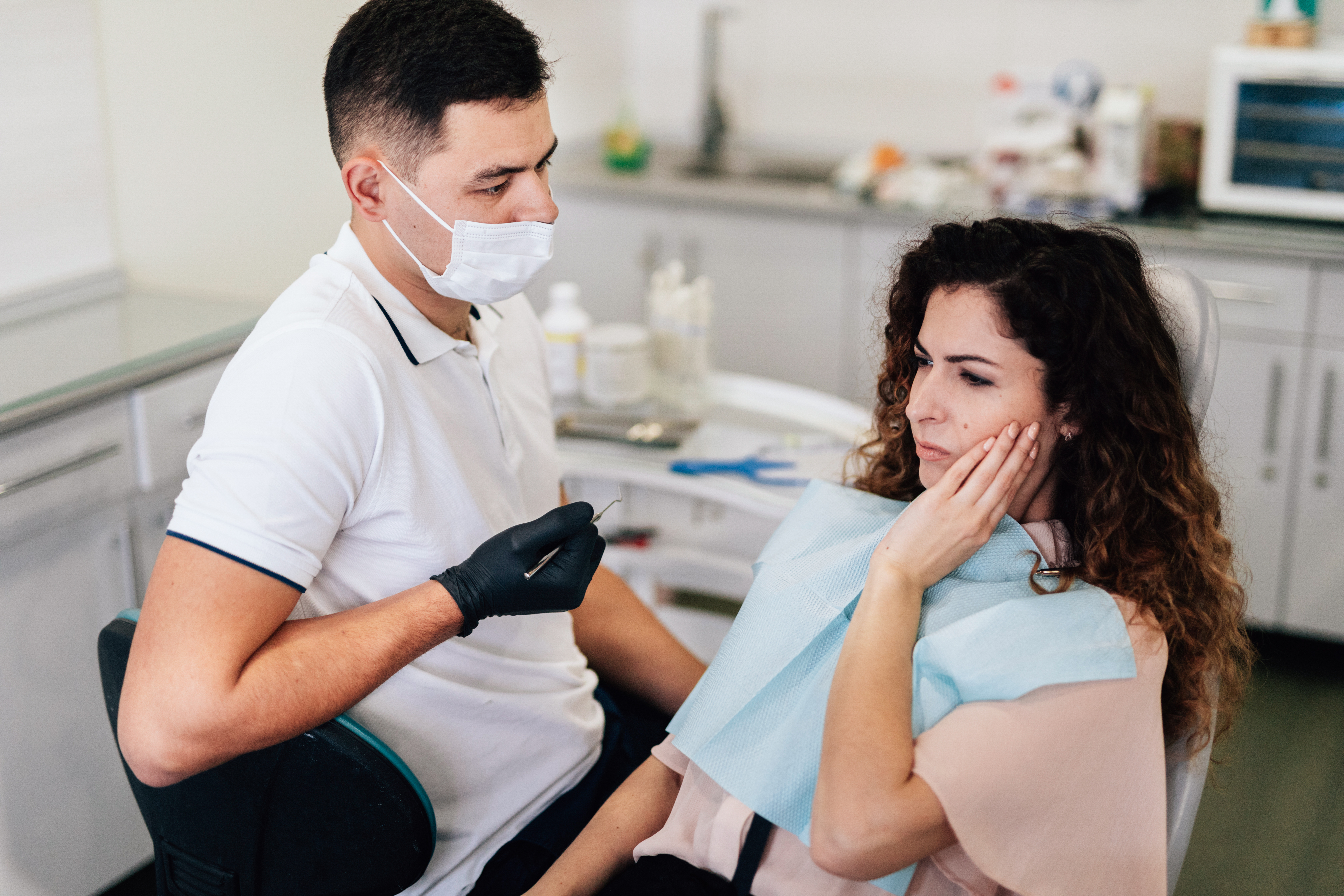What is a BDS Course?
Bachelor of Dental Surgery, commonly abbreviated as BDS, is an undergraduate medical program that deals with advanced knowledge of dental science. The programme deals with the study of dentistry with academic and clinical proficiency using medical techniques and guides students through various classifications of different branches and surgical procedures. Some major subjects and specialisations include Pedodontics, Oral Pathology, Oral Medicine and Radiology, Dental Materials, Dental Anatomy, Oral Histology, and Community Dentistry.
By undertaking this programme, students can train themselves to become dentists related to oral surgeries, orthodontics, aesthetics treatment, and more, and carry out diagnostic procedures along with prevention and treatment. The programme is structured in such a way that it enables not only but also fosters the rational, intellectual, and social ability of the aspirants.
Career Scope of BDS in India
A degree in dental studies opens doors to a wide range of opportunities for students. Over the last few years, more and more people have become aware of their dental hygiene. Moreover, the demand for cosmetic and aesthetic procedures is also at an all-time high. Earlier, people rarely consulted a dentist, but now paying a visit to the dentist is becoming a common affair. Thus, given this demand, there is a huge career scope for BDS graduates in India.
Graduates can find promising work in hospitals and educational institutions, and can also open clinics. Some prominent areas of employment for BDS graduates are Dental Clinics, Private Practice, Hospitals, Research Institutions, Educational Institutions, Pharmaceutical Companies and the manufacturing of Dental Products.
Recent Graduates can start their career in dentistry by becoming Junior residents in governmental and private health institutions and clinics. You can also join a clinic and start your career as a dentist in the clinical sector and non-clinical sectors. This expands your knowledge of clinical procedures, practice management, and soft skills and exposes you to real-life problems. After you get enough exposure in the field, you begin your private practice and set up your own clinic. If you do not wish to work but study further, you can also pursue a variety of master’s degrees and PG diplomas available for BDS graduates that can help you expand your skill set and explore more career options.
Best PG Courses After BDS
After graduating with a BDS degree, students can further dive into the medical field and expand their knowledge and career options by pursuing a variety of degrees and PG Courses. Most of these degrees and courses have a duration of 2 to 3 years and are an amazing opportunity for you to expand your knowledge of dentistry and medicine. Here are some of the best PG Courses after BDS.
Master’s degree in Dental Surgery (MDS)
After completing their B.D.S. degree, students can opt to pursue a master’s in the same field through a Master of Dental Surgery (M.D.S.) degree. As is obvious by the name, this degree expands on the concepts and knowledge imparted by a BDS Degree and gives you a deeper knowledge of the field of dentistry. It is also the highest educational degree in the field of dentistry in India and offers more and better career opportunities in various institutions than a BDS Degree. The program also allows you to choose a specialisation in the field of dentistry such as prosthodontics, orthodontics, operative dentistry, and conservative dentistry.
Some other popular specialisations or choices of a masters degree after BDS are Master of Dental Surgery in Orthotics, Master of Dental Surgery in Oral Pathology, Master of Dental Surgery in Oral Medicine, Master of Dental Surgery in Prosthodontics, Master of Dental Surgery in Microbiology and Oral Pathology, Master of Science in Forensic Dentistry, Master of Dental Surgery in Community Dentistry, Master of Dental Surgery in Maxillofacial and Oral Pathology, and Master of Dental Surgery in Radiology.
Master’s Degree In Public Health
A master’s degree in public health is also a great choice if you wish to continue your studies after completing your BDS. Commonly abbreviated as (M.P.H.), this programme can open doors to other opportunities in the field of medical science and public health as well instead of just dentistry. However, it is also to be noted that it does not restrict you from pursuing a career as a dentist if you wish to do so. It is usually a non-surgical, medical, or clinical role, with a focus on public health. As public health becomes a priority for governments and organisations worldwide, there is ample scope for students pursuing this degree after their BDS.
Master’s Degree In Business Administration
A lot of students wish to pursue a managerial career after their BDS degree and not a clinical role. For students who wish to do so, a Master of Business Administration (M.B.A.) with a specialisation in hospital management or healthcare management is a great choice. This degree can help you utilise the medical knowledge gained through a BDS degree and combine it with managerial skills to help you become a manager in healthcare and medicine.
PG Diploma and Cosmetology Courses
If you do not want to pursue a PG degree after your BDS, you can also opt for various PG diploma courses offered by various institutions. Some of these popular PG Diploma courses are, but not limited to, PG Diploma in Clinical Cosmetology (PGDCC), Fellowship in Medical Cosmetology (FMC), Postgraduate Diploma in Cosmetology (PGDC), Postgraduate Diploma in Trichology and PG Diploma in Clinical Research.
Jobs You Can Get After PG
Individuals after completing a degree in BDS and the subsequent PG degree have several career options. Some of the industries where a BDS graduate can work in different roles are
After finishing a BDS or PG degree, there are plenty of career paths to explore in dentistry. You could start your dental clinic after gaining experience in a hospital. This lets you give personalised care and help nervous patients with sedation. Hospitals also hire dentists to handle emergencies. Another option is working in pharmaceuticals, where you could do sales, marketing, or research.
Research institutes offer opportunities to become medical consultants or drug developers. You could also teach at a dental school or pursue roles as a dentist, surgeon, hygienist, or pathologist. Dentists diagnose and treat oral problems, while surgeons extract teeth. Pathologists study oral diseases. Hygienists help dentists and focus on prevention. Dental consultants improve dental practice operations, and dental scientists do research. With so many choices, the dental field offers plenty of ways to grow and make a difference.
Masters in Public Health Course by JGU after BDS
There are a lot of leading government and private institutions in India offering a master’s degree in public health. However, The Masters in Public Health programme offered by Jindal School of Public Health and Human Development (JSPH) is a specialised and innovative course that is one of India’s leading programs in the field of Public Health. This school is a part of OP Jindal Global University, India’s #1 Private University.
Building on JGU’s extensive engagement in the field of public health in the country, this two-year postgraduate degree programme is aimed at building future health leaders and lays a strong foundation for a global health approach. The program is designed to train students in the field of public health and human development and help them build foundational training, skills, and competencies to kickstart their careers in public health in India and globally.
The programme offers a research-intensive curriculum and includes a variety of valuable core courses, electives, specialisations, dissertations, and capstone options to give the students a comprehensive and interdisciplinary understanding of public health issues and solutions. Students can also participate in semester exchange and study abroad programmes with leading educational and health institutions in public health, which helps them build a global mindset and exposes them to the best in the industry.
Through its curriculum, it enables students to acquire competencies, skills, and values based on the essential MPH Competencies designed by the Council for Education in Public Health (CEPH), United States of America. The curriculum covers important course subjects such as epidemiology, biostatistics, health policy, health promotion, environmental health, and global health. Moreover, the curriculum is designed to help its students gain valuable life skills and transferable knowledge, such as critical thinking, research methodology, data analysis, and communication, which they can apply in various social and professional settings.
Is it the right program for you?
If you are determined to pursue a career in public health and want to positively impact the health and well-being of people and communities, the Master of Public Health course at JSPH is the right program for you. You can apply for the program irrespective of whether you come from a science or non-science background, making it accessible to everybody. Thus, you can also pursue this programme if you have a BDS Degree. The programme is also a great choice if you have a medical degree and want to expand and utilise your knowledge to pursue a new career in public health. It will also be useful for mid-career professionals working in health and other settings who wish to enhance their skills and knowledge and explore a rewarding and fulfilling career in public health in India and globally.
The programme is open to both international students and students from India. Regarding India, students with degrees in Medicine, AYUSH, Dentistry, Veterinary Sciences, Allied and Health Sciences, Life Sciences, Statistics, Biostatistics, Demography, Population Studies, Nutrition, Sociology, Psychology, Anthropology, and Social Work as well as any other related degree would be eligible. Foreign Medical Graduates who have not yet qualified FMG exam are encouraged to apply.
Career Opportunities After Masters in Public Health Course by JGU
The programme offers a promising, fulfilling, and rewarding career to its graduates in public health, community healthcare, education, research, policy, and advocacy.- both in India and around the world. Some popular career options after completing this degree are Epidemiologists, Health Administrators, Public Health Research Managers, Public Health Practitioners, Childbirth Health Educators, Assistant Environmental Scientists, Assistant Professors of Epidemiology, Assistant Public Health Professors, Public Health Lobbyists, or Public Health Consultants.
The programme also allows you to explore an international career in the field of public health and start your career as a Clinical Infectious Disease Specialist, Chief Medical Officer, Biosecurity Specialist, Research scientist, and Health Communications specialist. Given the skills and knowledge gained as part of this programme, graduates are also eligible to apply for work opportunities in public health organisations, NGOs, research institutions, government agencies, private companies, academia, and international organisations.
FAQs
- Is a BDS degree worth it in India?
Yes, a BDS degree can be worthwhile in India for individuals passionate about dentistry. It helps you build a strong foundation in dental sciences and prepares graduates for various career opportunities in clinical practice, research, academia, and more. Moreover, there is an increased demand for dentists in India, which makes it a safe option career-wise.
- Is there any demand for dentists in India? Is there stiff competition?
There is a demand for dentists in India, particularly in rural areas where access to oral healthcare is limited. However, the competition can be fierce in bigger cities, but since the demand for dentists and oral health professionals in increasing in both urban and rural areas, graduates can start private practice or find work in various government and private institutions.
- Is the BDS degree more academic-focused or practical-focused?
The BDS degree in India typically strikes a balance between academic and practical components. Students not only gain theoretical knowledge in dental sciences through coursework in subjects like dental anatomy, pathology, and pharmacology but also undergo extensive clinical training. Furthermore, they also gain real-life practical experience through internships, JR-ships, and clinical rotations.




